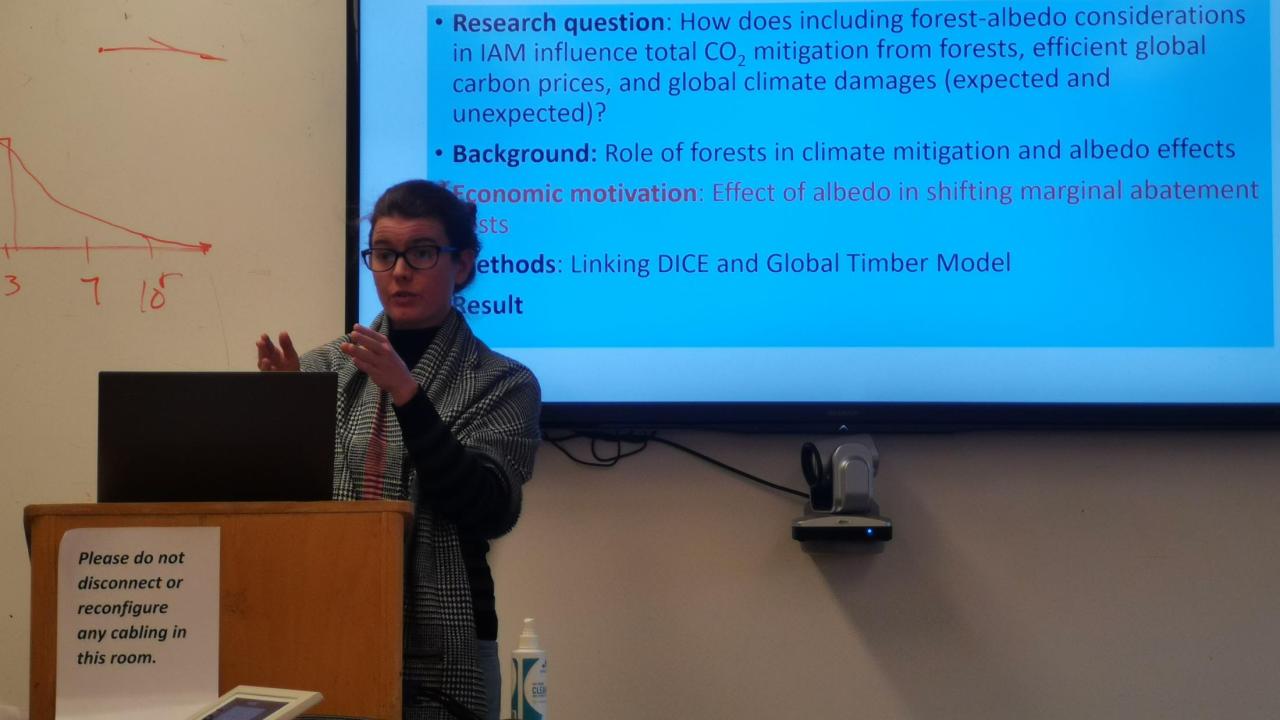
Lab Seminar - DICELAND: Exploring the economics of forests carbon sequestration and surface albedo in global climate policy"
Emily McGlynn presented her research on forests and climate change. Forests are considered a primary tool for addressing climate change. Expanding global forest area and extending forest age can remove CO2 from the atmosphere, but can also decrease Earth's albedo (or average reflectivity), particularly in snow- and ice-covered regions, thereby exacerbating warming. Previous studies have found that including albedo effects in forest carbon accounting would drastically decrease forests’ contribution to future climate mitigation. This study further assesses the effects of forest-driven albedo changes on global carbon prices, economy-wide mitigation, and climate damages. Emily and coauthors modify the Dynamic Integrated model of Climate and the Economy (DICE) to endogenously control forest sector emissions and parameterize the new model, DICELAND, using the Global Timber Model (GTM), which optimizes global forest carbon storage given a carbon price series. The higher cost of forest climate mitigation due to albedo effects could increase 2100 global carbon prices by 3% under “efficient” global climate policy, and up to 36% for “2 degree” global climate policy. The unexpected damages from ignoring forest-driven albedo effects could cumulatively reach US$4.5-5.8 trillion by 2100, or annual impacts of 0.2-0.3% of 2100 global economic output. The higher carbon prices of albedo sensitive policies would drive an additional 1-5% cumulative mitigation in the global energy sector by 2100. Albedo effects are therefore important to consider when setting forest carbon incentives as well as economy-wide climate policy.